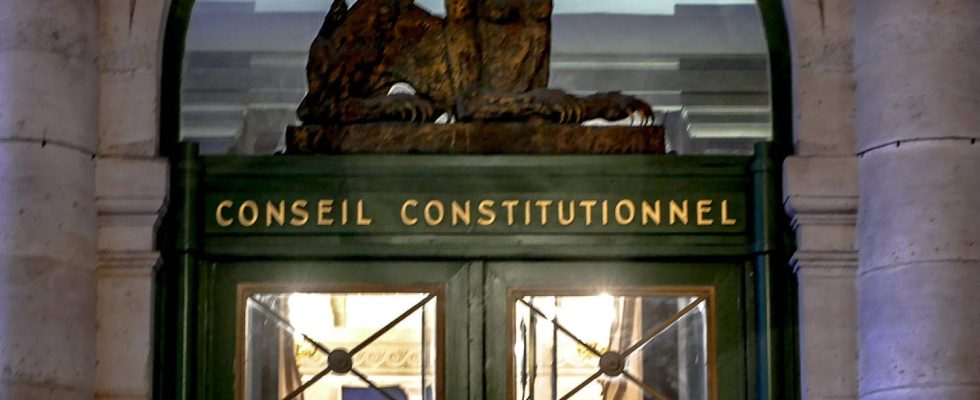The Constitutional Council delivered its verdict this Thursday on the immigration law. With more than 30 articles censored, the law has been profoundly changed.
The Constitutional Council decided to largely review the content of the immigration bill, to the great dismay of the right but to the pleasure of the majority. Of the 86 articles contained in the text, the nine Sages censored 35, including 32 deemed unrelated to the subject of immigration, this Thursday, January 25. Among the provisions challenged, those relating to the tightening of access to social assistance, family reunification, the establishment of a migration quota by Parliament, the restriction of land rights or even the establishment of a “deposit return” for foreign students.
These major measures particularly scrutinized
The verdict of the Sages was particularly awaited on the subject of major measures, all toughened or added by elected officials from the right:
- Migration quotas. This provision, which allowed Parliament to vote for three years on the number of foreigners having the right to settle in France, leading to a significant risk of equality, was deemed unconstitutional and was entirely censored.
- Restriction of land rights. An article in the latest version of the immigration bill provided for the end of automatic land law for the children of foreigners born in France. Instead, these children should have applied for citizenship between the ages of 16 and 18. The article was censored.
- The tightening of family reunification. The bill planned to make family reunification possible only after a stay in France of a minimum duration of 24 months, compared to 18 currently, and on condition of having “stable, regular and sufficient” resources, among other things. These provisions have been revoked.
- Access to social benefits. This is a point which crystallized criticism, it prevented a foreigner in a regular situation and without employment from receiving social benefits (APL, family allowances, etc.) before being able to prove at least five years of presence in the territory. The period was halved (2 and a half years) for working foreigners. A problem from the point of view of equality that the Constitutional Council must ensure between citizens before the law, without distinction of origin, religion or race.
- The introduction of a “return deposit” for foreign students. This measure which required foreign students to pay a deposit, rather than deposit a certain sum in a bank account, to be able to cover possible travel costs was also deleted from the text.
Other measures were opposed by the Sages of the rue de Montpensier, in particular some of the 27 measures which were considered to be legislative riders and therefore which a priori have nothing to do with the immigration law. Among them, the spouse’s mastery of French or those who require “sufficiently stable and continuous relationships” to qualify for family reunification, for example.
The decision castigated by the right, welcomed by the majority
Many of the censored provisions are additions or tightenings obtained or imposed by the right during the adoption of the text in the Senate. The Republicans were also awaiting the decision of the Constitutional Council with interest, but the verdict is not to their liking. “The Constitutional Council censored the Immigration law. They judged in politics rather than in law. This censorship was expected by Emmanuel Macron and the left” regretted Eric Ciotti on X judging that a “constitutional reform appears more essential than ever to safeguard the destiny of France”. Disappointment also for the National Rally which had hailed an “ideological victory” with the adoption of the bill. Jordan Bardella, president of the far-right party, denounced a “coup of force by the judges with the support of the President of the Republic himself”. He is not asking for constitutional reform but a “referendum on immigration”.
Unlike LR and RN, the Minister of the Interior at the origin of the bill, Gérald Darmanin, welcomes the decision of the Constitutional Council which “validates the entire government text”. “Never has a text provided so many means for expelling delinquents and so many requirements for the integration of foreigners,” he said on X (formerly Twitter), taking note of the “censorship of many articles added to Parliament”. The presidential camp, which lost feathers on its left wing after the adoption of the text, hoped as much as the left oppositions, if not more, that the Sages would reverse the right-wing measures which had toughened the text.
